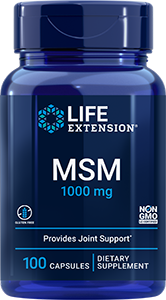- Science & Research
- Science News
- Newsletter
- 2011
- December 27

Newsletter
Newsletter
Vitamin B12 Folic Acid Improve Memory In Two Year Trial
Vitamin B12 and folic acid improve memory in two year trial
Tuesday, December 27, 2011. The January, 2012 issue of the American Journal of Clinical Nutrition published the results of an analysis of a randomized, controlled trial conducted by Australian researchers which found that supplementation with folic acid and vitamin B12 improved immediate and delayed memory in older men and women. The current study analyzed data from a trial of 900 participants with elevated psychological distress between the ages 60 to 74 who received 400 micrograms folic acid plus 100 micrograms vitamin B12, or a placebo for two years. The original trial was designed to analyze the effect of the supplements and other factors on depressive symptoms. (Late life depression is a risk factor for cognitive impairment.) Cognitive function was assessed at the beginning of the study and at 12 and 24 months. While orientation, attention, verbal memory and processing speed remained unchanged, greater improvements from baseline in immediate and delayed recall scores were observed among those who received vitamin B12 and folic acid compared with the placebo group. Plasma homocysteine, an amino acid that, when elevated, is associated with a greater risk of cardiovascular events, increased by an average of 8.33 percent among those who received the B vitamins, and by 22.45 percent among those who received the placebo. Having a high homocysteine level at the beginning of the study was associated with reduced cognitive performance at 24 months, as were higher depression scores. "The significant effect of folic acid plus vitamin B12 supplementation occurred in the later stage of the intervention, i.e., at 24 months," Janine G. Walker and colleagues write. "It is possible that the effects of folic acid plus vitamin B12 supplementation are long term and operate by reducing vascular and other metabolic risk factors for cognitive impairment." "The prospect of using dietary supplements of folic acid and vitamin B12 to prevent cognitive decline appears promising," they conclude. "More studies are needed to determine whether the benefits of folic acid and vitamin B12 supplementation found in this trial could be replicated in other populations of older adults with increased risk of developing significant cognitive impairment." | ||||||||||||||||||||||||||||||||||||||||
 | ||||||||||||||||||||||||||||||||||||||||
| ||||||||||||||||||||||||||||||||||||||||
 | ||||||||||||||||||||||||||||||||||||||||
| ||||||||||||||||||||||||||||||||||||||||
| ||||||||||||||||||||||||||||||||||||||||
The latest news on aging, nutrition, and vitamins
Lab
Testing
How Life Extension lab testing works









